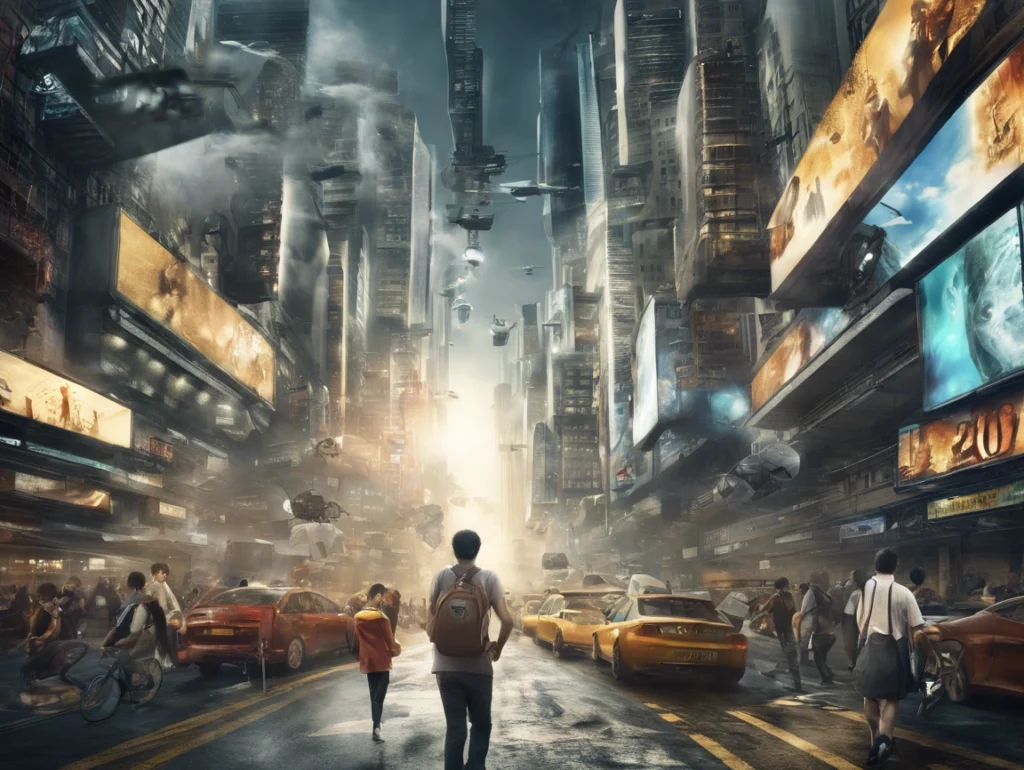
You know what, looking back at 2024, it’s kind of mind-blowing how much has changed in just one year. We saw massive leaps in how we live, work, and connect with each other. It felt like progress was happening everywhere, didn’t it? But here’s the thing: not all of it came without a price. Some of these shifts really took a toll on us – physically, mentally, even socially.
Let’s talk about it. It’s not like 2024 was a total bust or anything; there were some amazing things. But when you really think about it, the way some of these changes played out makes you wonder if we’re losing balance in the process.
Overreliance on Technology
In 2024, technology became even more integrated into daily life, but this reliance brought unintended consequences.
- Digital Addiction: Increased screen time due to work, social media, and entertainment led to digital fatigue and reduced real-world interactions.
- Privacy Concerns: The widespread use of AI and smart devices raised concerns about data security and personal privacy.
- Loss of Skills: Automation and convenience tools diminished the need for certain manual and cognitive skills.
Deteriorating Mental Health
While mental health awareness grew in 2024, many aspects of modern life contributed to rising stress levels.
- Work Burnout: The always-online culture blurred boundaries between work and personal life, leading to overwork and burnout.
- Social Isolation: Despite digital connectivity, face-to-face interactions declined, leaving many feeling lonely and disconnected.
- Pressure to Perform: The societal emphasis on productivity and success created undue pressure, particularly on younger generations.
Unsustainable Consumer Habits
Despite growing awareness about sustainability, consumerism remained rampant in 2024.
- Fast Fashion: The demand for trendy, inexpensive clothing continued to harm the environment and exploit labor.
- E-Waste: Frequent upgrades of devices and gadgets contributed to electronic waste, a growing environmental hazard.
- Overconsumption: Many struggled to embrace minimalism, leading to cluttered lifestyles and resource depletion.
Health Challenges
The fast-paced lifestyle of 2024 had significant impacts on physical health.
- Sedentary Living: Increased reliance on remote work and digital conveniences reduced physical activity for many.
- Processed Diets: Busy schedules led to a dependence on fast food and processed meals, resulting in rising obesity rates and chronic illnesses.
- Sleep Deprivation: Blue light exposure from screens disrupted sleep patterns, affecting overall health and productivity.
Economic Inequalities
The economic landscape of 2024 highlighted widening disparities despite advancements in technology and infrastructure.
- Job Displacement: Automation and AI replaced many traditional jobs, disproportionately affecting lower-income workers.
- Rising Costs: Housing, healthcare, and education became less affordable, increasing financial stress for middle and lower-income families.
- Wealth Gap: Economic growth often benefited the wealthy more than the general population, exacerbating social inequalities.
Environmental Challenges
Despite global initiatives, the lifestyle of 2024 often conflicted with environmental goals.
- Carbon Footprint: High energy consumption from digital infrastructure and transportation contributed to greenhouse gas emissions.
- Urban Overcrowding: Rapid urbanization led to strained resources, pollution, and declining quality of life in many cities.
- Disposable Culture: The convenience-driven approach to life encouraged disposable products, undermining sustainability efforts.
Loss of Cultural and Personal Identity
The fast-paced, globalized lifestyle impacted personal and cultural identities.
- Homogenization of Cultures: Global trends overshadowed local traditions, leading to a loss of cultural uniqueness.
- Time Scarcity: Busy schedules left little room for self-reflection, hobbies, and exploring one’s identity.
- Superficial Connections: Social media emphasized curated personas over genuine, meaningful relationships.
So, What Do We Take From This?
Honestly, 2024 was a wake-up call. It showed us just how much we need to find a balance between embracing progress and protecting what really matters—our health, our relationships, and our planet.
If anything, maybe 2024 taught us that it’s okay to pause, reassess, and ask: “Are we moving forward in a way that actually works for us?”
Looking ahead, I feel like 2025 could be our chance to get it right. What do you think?
Author
Muhammad Bin Nadeem




